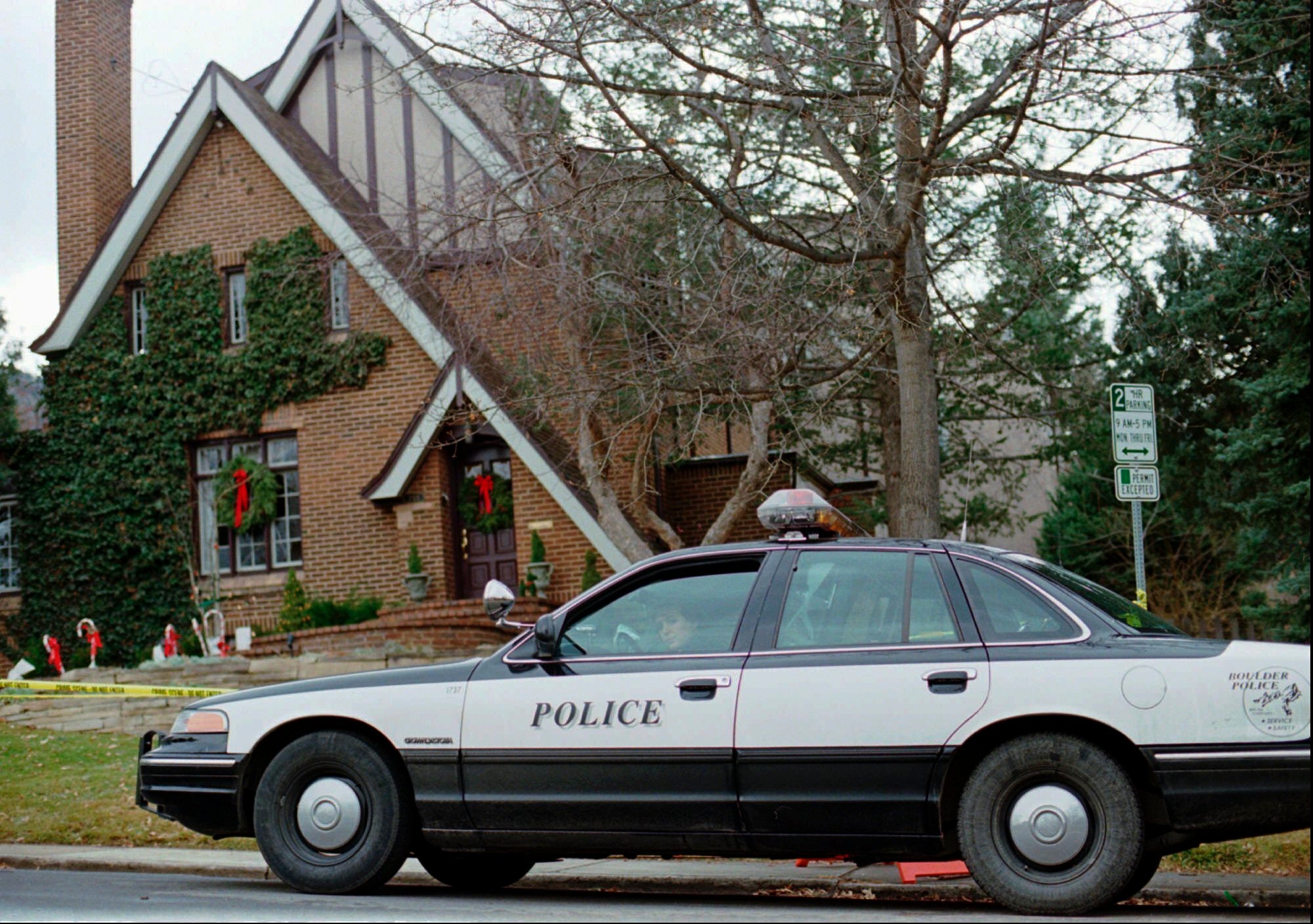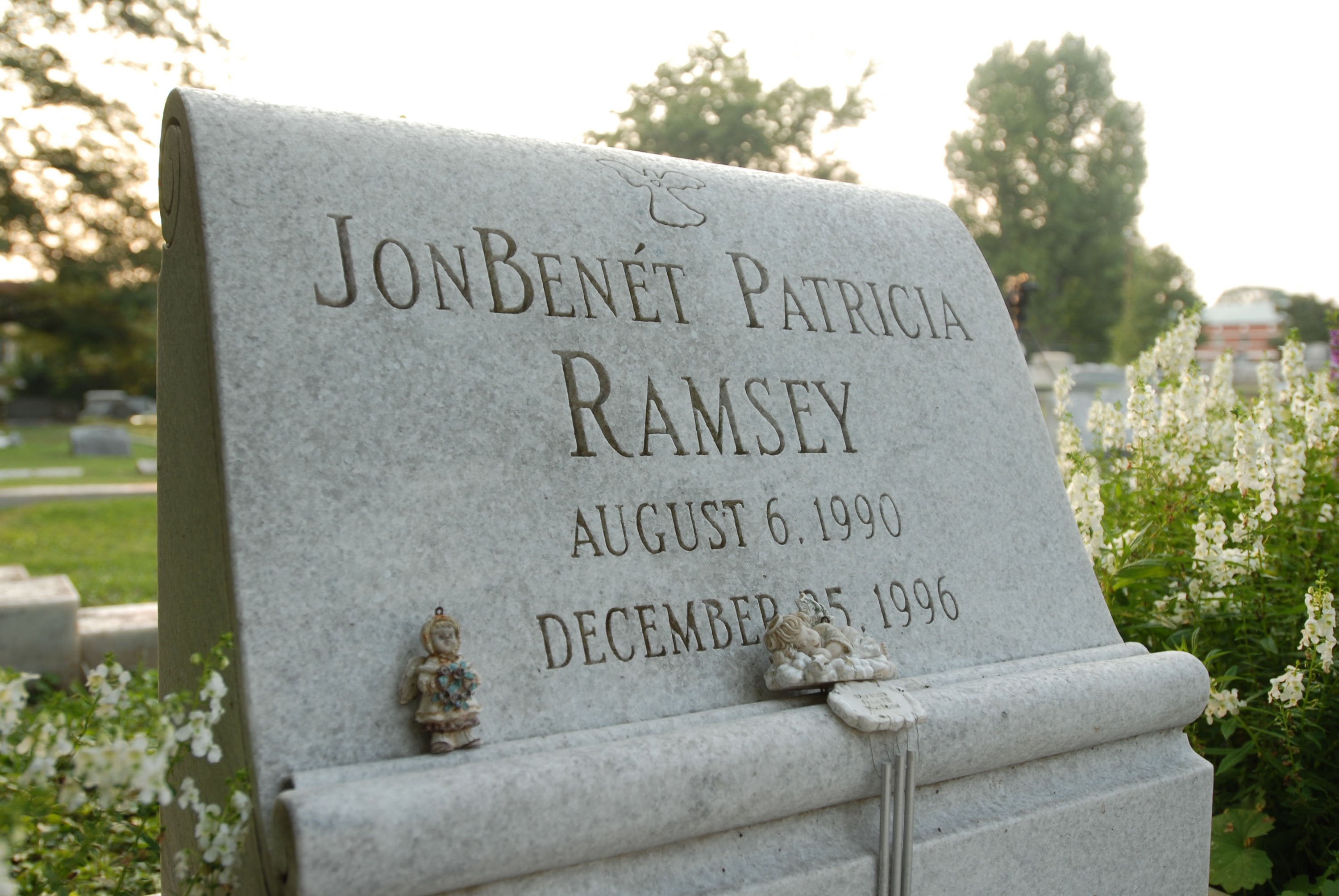Six months before the sensational case of JonBenét Ramsey’s murder hit the news – along with the near ubiquitous presence of the tiny blond’s beauty pageant glamor shots – the documentary Paradise Lost premiered.
The film by Joe Berlinger cast doubt on the guilt of a trio of Arkansas teens convicted in the killings of three local eight-year-olds.
For Berlinger, whose films on the West Memphis Three not only earned him an Oscar nomination but also saw the prisoners walk free, a key element of his work has always centered on rooting out – and hopefully correcting – injustices.
But JonBenét’s murder didn’t immediately catch his eye as a possible example. After the 6-year-old’s body was found on the day after Christmas in 1996, talk shows, tabloids and the barreling behemoth of 24-hour news grabbed the story and ran with it, usually relating details parceled out strategically by police in Boulder, Colorado.
“Back then I fell for it,” Berlinger, 63, tells The Independent. “And I’m embarrassed that I fell for it, because I had just finished Paradise Lost, which is all about wrongful conviction – but I had a two-year-old daughter at home, and I kind of bought into the media hype.
“And I thought to myself, ‘Gee, my daughter, my two-year-old, is very cute, and I bet when she’s six, she’ll be really cute; I would never put her into a beauty pageant’ – and I had a bunch of judgment about that.”
He wasn’t alone; even now, ask almost anyone about JonBenét Ramsey and they’ll have strong opinions and a theory about who killed her.
More often than not, they’ll point to her parents or then-nine-year-old brother, all of whom were home in the family’s tony, holiday-decorated mansion at the time of the JonBenét’s murder. Patsy Ramsey called 911 to report finding a ransom note for her daughter before dawn on December 26, 1996; hours after police first responded, another search of the property led by Patsy’s husband, John, uncovered their daughter’s body in a basement room.
“Over time, as I became more familiar with the case, it became illogical,” says Berlinger, who did a “deep dive” into the murder and investigation that increased his skepticism – resulting in his new Netflix three-part docuseries, Cold Case: Who Killed JonBenét Ramsey, which premieres on Monday.

Key to the director’s research was the work of Lou Smit, a Colorado Springs detective who came out of retirement to assist the Boulder district attorney’s office in the months after the killing. Smit quickly decided the Ramseys were not involved, putting him at odds with local police and launching a personal mission to uncover the truth. (His family and friends carry on that mission 14 years after his death.)
After looking at Smit’s detective work, Berlinger says, “that’s when I had this ‘a-ha!’ moment.”
The documentary highlights many of Smit’s points, such as his insistence that an intruder could easily have crept into the house and waited to snatch JonBenét before the plan went horribly wrong.
The special investigator also believed that DNA would ultimately solve the case, and many viewers will likely be surprised to hear of the delays and lack of DNA testing by Boulder authorities persisting even today.
The Netflix series outlines how a DNA report clearing the Ramseys was given to Boulder police by the Colorado Bureau of Investigation in the months after the murder; the documentary posits that, since the family’s innocence did not align with local police’s theory, it was unnecessarily withheld while stories kept getting fed to the press painting the Ramseys as guilty.
According to Smit’s notes, the CBI DNA report was not shared with Boulder prosecutors for months; despite the evidence, as well, city authorities continued to let suspicion focus on the Ramsey family, only clearing them publicly in 2008 – a clearance which did little in changing public perception after decades of blame placement and innuendo.
JonBenét was brutally sexually assaulted and tortured with a garrote (a knotted cord tied to the broken handle of a paintbrush taken from her mother’s supplies) before she died. Unknown male DNA was found in her underwear, however that DNA has yet to be identified, and contamination concerns persist given lax crime scene securement at the time and other issues. Testing methods have exponentially evolved since the mid-1990s, however, the director tells The Independent.
“With the advances in DNA technology, I think this case can actually be solved,” Berlinger says. “And so I will be honest and say one of my goals of this show is to pressure Boulder police to finally do the right thing … the Ramsey family has been pounding the table for several years for additional DNA testing.”

He’s talking about the surviving Ramsey family; JonBenét’s mother, Patsy, died in 2006 at age 49. The child’s older half-sister, 22-year-old Beth, had been tragically killed in a car accident in 1992 when JonBenét was a toddler.
“I can’t imagine a more brutalized family than the Ramsey family,” Berlinger tells The Independent. “John Ramsey – who I think deserves a Purple Heart [or] five Purple Hearts – he lost his daughter, Beth, from a previous marriage. As a parent, I can’t think of anything more painful.
“JonBenét was the magic elixir that was going to help that family recover, and she’s brutally murdered in the most horrific way imaginable – and then they’re blamed for it. The mother, Patsy, is dealing with ovarian cancer, and no doubt the stress of that murder and being blamed for it, I’m sure, contributed to it coming back.”
The then-Boulder DA cleared the Ramseys and her brother, Burke, in 2008, writing that she was “deeply sorry.” There have been myriad prosecutorial and police regime changes since the murder, and opinions differ. Suspicion within the wider arena has lingered to the point that CBS went ahead with a 2016 program theorizing that Burke accidentally killed JonBenét before their parents staged the scene.
He sued CBS for $750 million and the case was settled in 2019.
Burke doesn’t speak in the docuseries, but it features interviews with John Ramsey and another adult son from his first marriage, in addition to Colorado reporters – not all of whom come out looking great – and law enforcement experts. The program also delves into the strange case of John Mark Karr, a pedophile extradited from Thailand who confessed to the killing but was ruled out by alibi and DNA, despite his knowledge of unreleased details.

Berlinger says part of his motivation for making the docuseries was his “desire always to shine a light on things that I think are wrong and need to be corrected.”
“I’m blessed that I can say that … my work has been the catalyst for six people being released from prison,” he says. “So I am deep in the wrongful conviction space, and there are certain patterns that make wrongful convictions happen that I see in this case.
“Just like in the West Memphis case … what you often see in wrongful conviction cases is kind of a small-town police force that’s not experienced enough to handle the crime that gets locked into an idea early on and can’t move that tunnel vision – and this is what you see in this case,” he says, though convictions here came in the court of public opinion rather than court of law.
“It’s exacerbated by the fact that [the authorities’] method was to feed false or incomplete stories to the press in an era where there was just exploding irresponsible journalism, and it just created this firestorm.”
For those who lived through the Nineties, it can be easy to forget just how far some cable programs and talk shows pushed matters and muddied agendas; for younger audiences, clips will be jaw-dropping. The new Netflix series includes footage from one mock trial held of the Ramseys on a daytime chat show which included input from an “expert” who made an explicit interpretation of JonBenét’s performance with a saxophone that Berlinger calls “obscene.”
In another mind-boggling reality, the Ramseys went head-to-head on CNN with a former Boulder detective who’d written a book accusing Patsy of the killing (this cop not only settled with the Ramseys after they sued for libel and defamation but also failed to exhibit a solid grasp of case detail in other recorded interviews.)
The exploration particularly of the media’s role was another motivating factor behind the JonBenét docuseries, Berlinger tells The Independent.
“I have always been very concerned about this decades-long march we’ve had towards the lessening of journalistic standards and the rise of opinion journalism, which has divided our country,” Berlinger says, adding that he believes the deep division has arisen “because we each tune in to different opinions on television, and the truth is somewhat ephemeral.

“And I think all of this began with not just the JonBenét Ramsey case, but JonBenet, OJ Simpson … the early 90s gave birth to a whole new era of irresponsible journalism.
“All of a sudden there were 500 networks in a 24-hour news cycle, and everyone thought they could make money on telling real stories, and I think journalistic standards greatly declined – and you can trace that to today’s environment, where we have kind of the death of truth, and 50 percent of the population gets its news from TikTok.”
While he laments the state of the news landscape, Berlinger does have hopes that perhaps his project can prompt action from investigators in Colorado. A cold case review team of outside experts last year made recommendations to Boulder police about how best to proceed in the investigation, but the department only announced that “the specific recommendations will not be made public at this time… However, we are committed to following the recommendations generated from this cold case review.”
The release from December 2023 insisted that Boulder authorities were “working with leading DNA experts from across the country to ensure the latest forensic techniques are used to analyze remaining DNA samples.
“The evidence has been preserved and will continue to be ready for testing when there is proven and validated technology that can accurately test forensic samples consistent with the evidence available in this case. Detectives are actively taking steps to prepare the evidence for testing when possible.”
When asked this week by The Independent for any updates about such testing – along with detailed other questions – a spokeswoman only continued to urge anyone with information to contact detectives but cited the “open and ongoing” nature of the investigation as the reason for no further comment.

In a statement, Chief Steve Redfearn said: “The killing of JonBenét was an unspeakable crime and this tragedy has never left our hearts. We are committed to following up on every lead and we are continuing to work with DNA experts and our law enforcement partners around the country until this tragic case is solved. This investigation will always be a priority for the Boulder Police Department.”
Boulder police wouldn’t play ball with Berlinger’s team, either.
“They wouldn’t officially sit down, and they wouldn’t reveal any information; nor have they revealed much information to the Ramseys,” Berlinger says. “Our belief, until we’re told otherwise, is not much has been done, and there are advances in DNA technology that demand that they take action.
“And there is a good likelihood that this crime can be solved. There are old items that were tested that need to be retested. There were old items sent to the crime lab that were never tested.”
Putting it bluntly, Berlinger says: “Let’s get some action finally. Let’s dismiss all these crazy conspiracy theories that defy logic.
“Let’s focus on the fact that there can be some DNA tested, and it could possibly lead to finding out who the killer is.”







